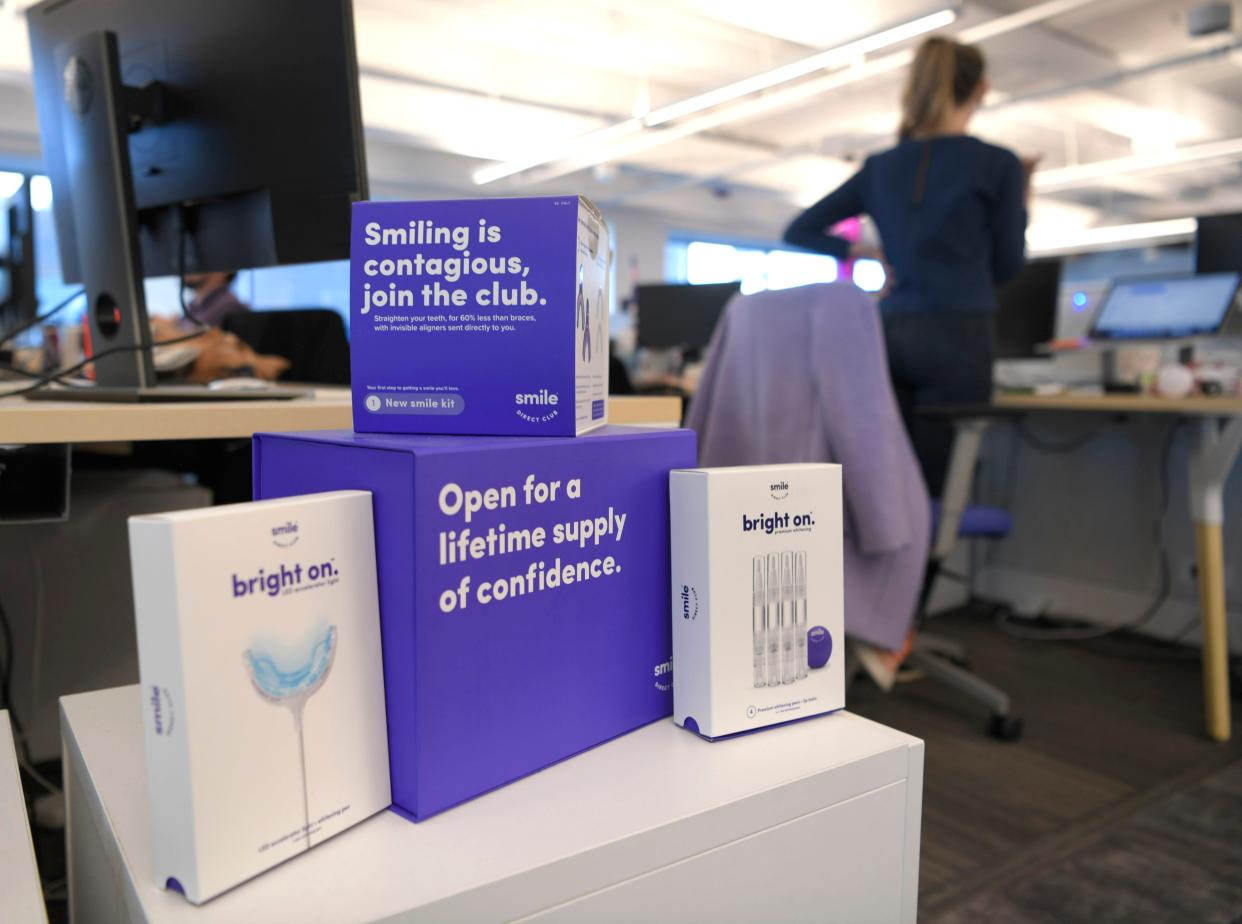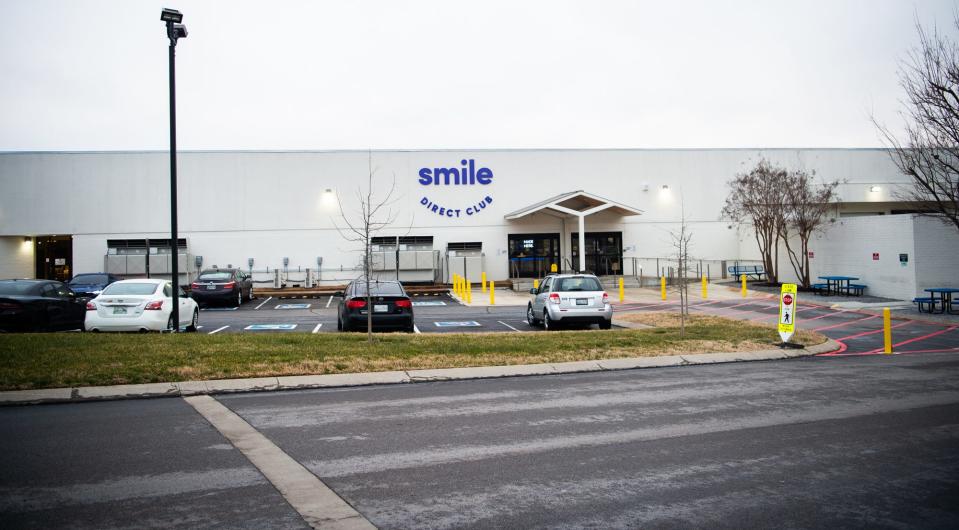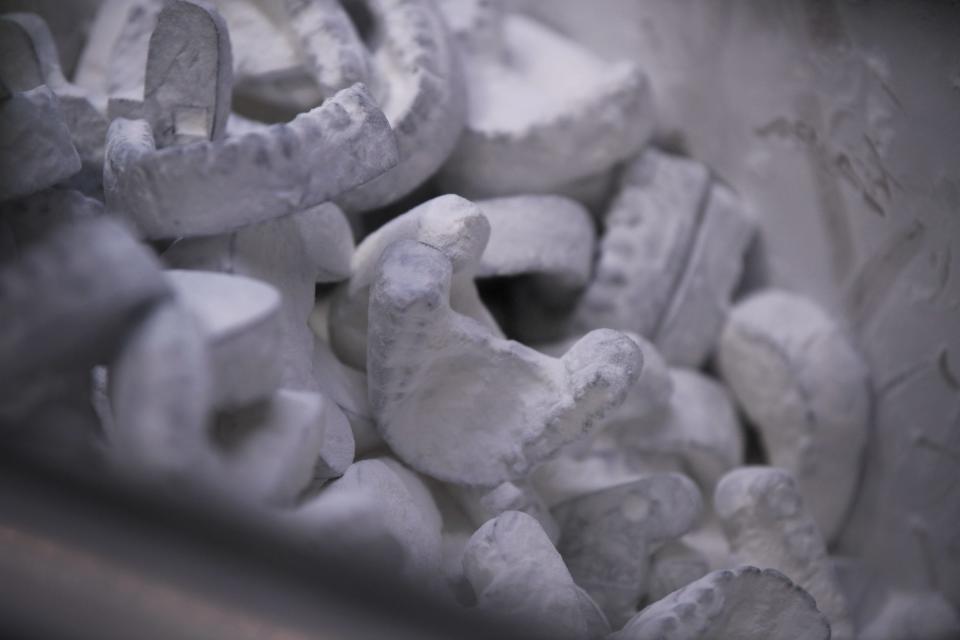Tennessee law strengthening First Amendment rights faces test before appeals court in $2.8B lawsuit

A new law strengthening the First Amendment rights of Tennesseans faced a major test this week in a high-profile defamation case involving Nashville-based SmileDirectClub and NBC News.
Lawyers for the Nashville-based dental company SmileDirectClub and NBC Universal Media squared off before the Tennessee Court of Appeals on Wednesday over the constitutionality of the new state law.
SmileDirectClub accused NBC Universal Media and reporter Vicky Nguyen of publishing over 40 “false and misleading” claims about the company in February 2020 and sought $2.85 billion in damages.
How it started: SmileDirectClub slams NBC with $2.85B lawsuit after newscast aired 'hit piece' about company
But a judge dismissed the lawsuit in December 2021 under the 2019 Tennessee Public Participation Act, which is an expansion of the state’s “anti-SLAPP” law — or “strategic lawsuits against public participation.” NBC had filed a petition under the 2019 law.
These lawsuits, referred to as “SLAPP lawsuits,” are common methods of silencing criticism and preventing people from exercising their First Amendment rights through baseless and expensive legal proceedings.
Anti-SLAPP measures protect people's First Amendment rights and allow judges to dispose of cases earlier in the legal process, before litigation drags on in the courts. Costly and lengthy lawsuits can themselves infringe on a person or company's First Amendment rights.
But SmileDirectClub, a teledentistry company that offers alternatives to traditional braces and aligners, is appealing the ruling that declared their suit a “SLAPP lawsuit,” and is pushing to move ahead in their case against NBC in what its lawyers call a “clear case” of defamation.
SmileDirectClub claims there is 'no doubt' of defamation
Erik Connolly of Benesch, Friedlander, Coplan and Aronoff serves as outside counsel for SmileDirectClub. The company accuses NBC of publishing “false and misleading” claims in their 2020 broadcast. But Connolly told the court the case for defamation could be made even if a news organization is reporting complete truth.
“The role of the court is a gatekeeping function to decide whether or not the article at issue is capable of being understood as a defamatory meaning,” Connolly said. “It doesn’t matter if the statements in the report are literally true. You can find defamatory meaning in the report even if every single statement in the report is literally true. You can find defamatory meaning in implication (too)—the accusation doesn’t need to be express.
“Basically the facts can be facts and still be understood as defamatory.”

Connolly said SmileDirectClub alleged that NBC made four specific defamatory claims: that “treatment using the platform is not safe, that treatment using the platform is not effective, that doctors aren’t actually involved in treatment using the platform and that SmileDirectClub is dishonest.”
Connolly also spoke on the “substantial amount of evidence” sent to NBC prior to the release of the broadcast — evidence that he claims was ignored by NBC, therefore proving defamation.
“We gave you a 394 paragraph statement of facts…NBC did not respond to that at all,” he said. “With that evidence in hand, it is impossible to say (the broadcast) is incapable of being understood in a defamatory implication.”
Judge Kristi M. Davis pushed back on that point.
“But they had countervailing evidence,” she said. “So from a broad perspective, what would you have NBC do, other than make the talking points you made? They have people saying the treatment was not effective. From a broad perspective as a new organization, isn’t that what NBC is supposed to do?”
Connolly disagreed.
“Absolutely not,” he said. “They lied. The information they provided was false and misleading. And if you look at the 40 statements I provided that were defamatory, I gave you reasons why they were false and misleading, and reasons why NBC knew they were false and misleading.”
Davis continued to question that logic, raising questions of basic reporting.
“Or (NBC) just found someone who has something contrary to say,” Davis said. “And isn’t that what news is? Isn’t that what reporting is?”
NBC Universal denies 'ignoring evidence'
Jonathan Hacker, partner at international law firm O’Melveny, spoke on behalf of NBC Universal.
“The court below dismissed (this case) previously because the plaintiff was unable to produce clear and convincing evidence, legally sufficient, proving that NBC knew that any of (the reported) statements were false,” Hacker said. “And none of them were! But even so, the court upheld that there was no evidence.”

Judge Frank G. Clement Jr. noted that while this case had similarities to average defamation cases, the fact that SmileDirectClub provided additional evidence prior to publication was a unique factor.
Hacker did not agree.
“It’s not that different,” he said. “This wasn’t us digging up some fact that was unknown and presenting it to the world — members of Congress were already concerned about the exact thing we reported.”
Hacker disagreed with Connolly’s assertion that NBC ignored any evidence — or that SmileDirectClub's claims were evidence at all.
“All of the evidence that Connolly is talking about is essentially their side of the story—things they would say if they were publishing a report about their side of the story,” he said. “This is already a hot-running controversy with many sides. There’s zero evidence we didn’t review it….we then reported what we believed to be accurate statements of criticisms and complaints that people had made with their own experiences with SmileDirectClub.”
A ruling has not yet been handed down in the case.
The USA Today Network - Tennessee's coverage of First Amendment issues is funded through a collaboration between the Freedom Forum and Journalism Funding Partners.
Have a story to tell? Reach Angele Latham by email at alatham@gannett.com, by phone at 731-343-5212, or follow her on Twitter at @angele_latham.
This article originally appeared on Nashville Tennessean: SmileDirectClub appeals in lawsuit against NBC Universal

